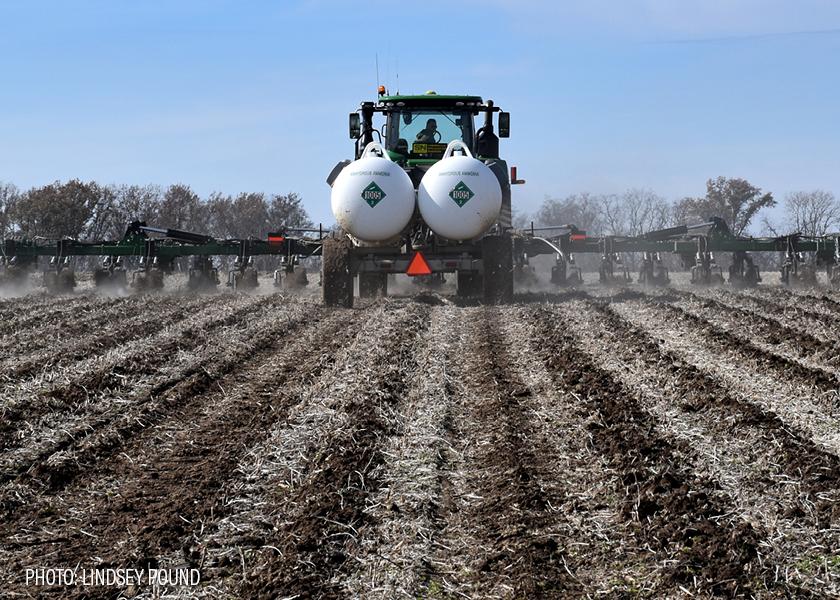14 Fall Ammonia Season Safety Reminders

As we prepare for the upcoming fall ammonia season, Illinois Fertilizer and Chemical Association (IFCA) has provided a listing of 14 key safety reminders and recommendations for handling & transporting anhydrous ammonia:
1. Remember to always utilize your ammonia gloves and chemical splash goggles when working around ammonia. Never wear contact lenses when working around anhydrous ammonia.
2. Always assume ammonia is present in all equipment or hoses and thoroughly purge the ammonia prior to inspection or maintenance.
3. Inspect those ammonia hoses for any nicks, cuts, soft spots, and coupler slippage. When in doubt, purge and change the hose out.
4. Follow the replacement date indicated by the hose manufacturer and remember ammonia hoses cannot be repaired.
5. Make sure each nurse tank has 5 gallons of fresh clean water. Additionally put a gallon water jug in your truck and tractor.
6. Pre-trip inspection prior to pulling nurse tanks to and from the field of application. Check the condition of the trailer as well as the tank prior to pulling out onto the roadway.
7. Slow down! No more than 25 mph when pulling ammonia tanks.
8. Avoid congested or high traffic areas when pulling nurse tanks to and from the field of application.
9. You are required to stop at all active rail crossings when pulling nurse tanks to and from the field of application.
10. Always shut-off all nurse tank valves and disconnect transfer hoses before pulling onto a public roadway. This is required by law. You should never have a "charged" system when sharing the roadway.
11. Nurse tanks should not be operated in low light conditions or before or after sunset UNLESS you have a rotating, flashing amber light on the tank(s). Today's motorists are not as familiar or patient with farm equipment even in rural Illinois, so it is always best if slow moving vehicles are kept off the roads during non-daylight hours.
12. Never forget the safety chains, even in the field of application. Nurse tank trailers are put to the test during the ammonia season, being asked to serve as both highway vehicles and then being pulled through rough field conditions. The safety chains can save you from catastrophe if the hitch fails! Hook them up every time.
13. Are your break-away devices working on the application equipment? This is another safety mechanism designed to prevent releases, but they must be installed correctly and maintained so that they work. Proper installation and preventive maintenance are key!
14. Never hesitate to make the call if you have an ammonia release. A reportable quantity (RQ) for anhydrous ammonia is 100 pounds (18 gallons) or more. If you are unsure, you have met the RQ threshold, still make the call. Tell the emergency operator exactly what has happened so that law enforcement and fire departments show up prepared to deal with ammonia. Whoever is in possession of the ammonia tank at the time of the release must make this call immediately. A written follow-up report is also required and must be sent to IEMA and the LEPC. Ammonia release contact information for Illinois can be found here.







